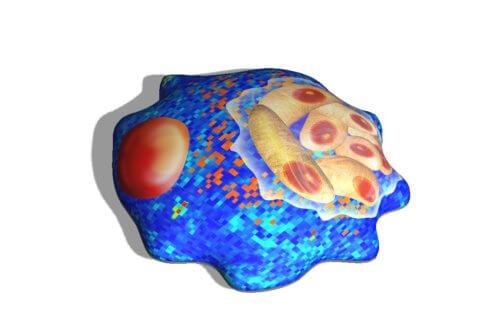
NOTTINGHAM, United Kingdom — Toxoplasma gondii is a parasite that can cause serious illness and even death among both pregnant women and immunocompromised individuals. The parasite is incredibly common, existing in roughly a third of the world’s human population. Interestingly, however, there may be a serious silver lining to its existence. A new international study reports Toxoplasma gondii may be useful as a form of treatment on certain cancerous tumors.
Researchers from the University of Nottingham, Ningbo University, and Shanxi Agricultural University, have discovered that the parasite can sensitize “cold tumors” to immune checkpoint blockade therapy. Scientists consider a tumor cold when it does not trigger a strong immune response by the body.
Taming parasites to kill cancer
To start, researchers had to “tame” the parasite. Normally, Toxoplasma gondii lives inside its host’s cells and secretes various proteins that serve to counter the host’s immune system and allows the invasion of the host cells. For this study, though, the team developed a specialized Toxoplasma gondii mutant strain. This mutant version had limited ability to grow or cause disease, but could still manipulate the host immune system.
Study authors injected the mutant parasite into lab mice with solid tumors, causing inflammatory responses — both in the directly injected tumor and as well as other tumors throughout the rodents’ bodies. The mutant strain appeared to make the tumors more responsive to treatment with immune checkpoint inhibitor.
This approach notably extended the lifespans of the mice and slowed down tumor growth in mouse models of melanoma — Lewis lung carcinoma and colon adenocarcinoma.
“The use of a mutant version of Toxoplasma gondii in the treatment of certain tumors in mice models has been previously reported. What makes this study different is the confirmation that intertumoral injection with mutant Toxoplasma gondii strain boosts antitumor immunity and the effectiveness of checkpoint inhibition therapy,” says lead study author Dr. Hany Elsheikha, a Nottingham associate professor in the School of Veterinary Medicine and Science, in a university release.
“These are significant findings and are relevant to future tumor therapy. The marked reduction in tumor size and the significant improvement in the survival of mice that received this novel combinational therapy is promising but should be interpreted with caution as further research is needed,” Elsheikha concludes.
The study appears in the Journal for ImmunoTherapy of Cancer.
